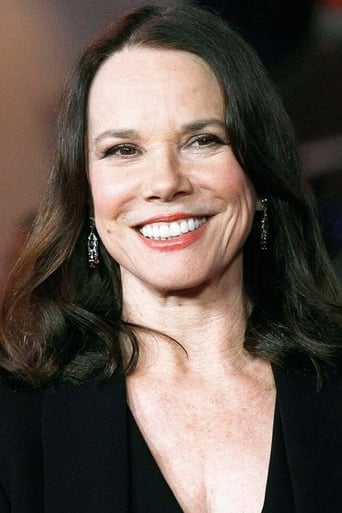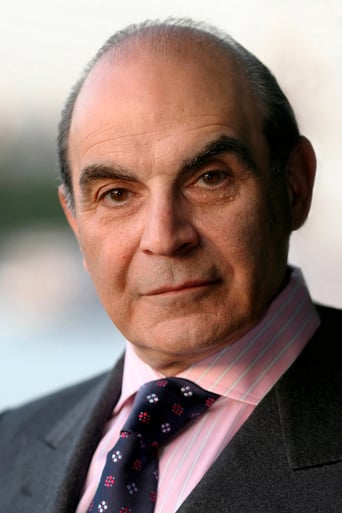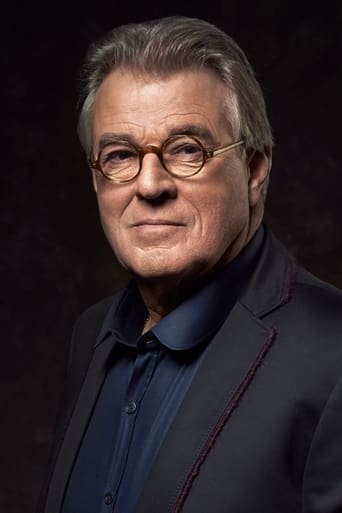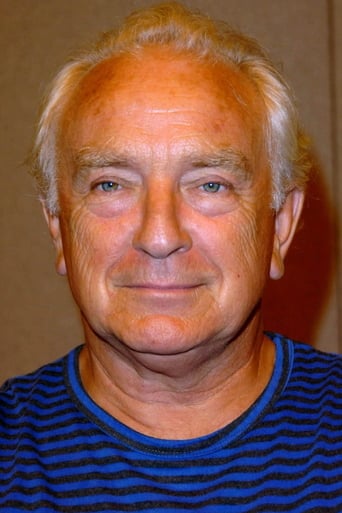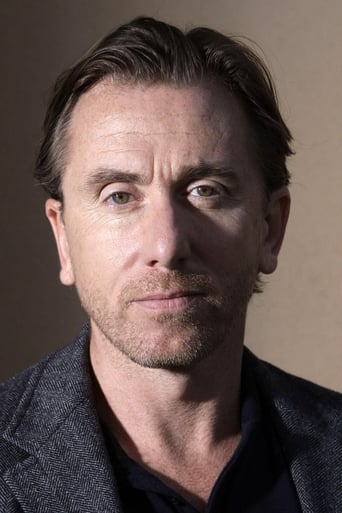Boobirt
Stylish but barely mediocre overall
Dorathen
Better Late Then Never
Beystiman
It's fun, it's light, [but] it has a hard time when its tries to get heavy.
sddavis63
Apartheid was just beginning to face its end in 1988 as this movie was being made, but it was still a few years away from disappearing completely. This movie is set in the 1960's - a time when apartheid was still enforced ruthlessly, and "A World Apart" gives us the story of a white but anti-apartheid family struggling against the regime. The story is shown largely through the eyes of Molly Roth (played by Jodhi May) - a 13 year old girl. As the movie begins her father is leaving South Africa to avoid arrest as a communist. Meanwhile, her mother is an anti-apartheid journalist. Molly finds herself increasingly ostracized by many of her white friends and their families because of her family's political views, and her mother is arrested by the government under a law that allowed for people to be held for 90 days without being charged so that they could be interrogated. The movie certainly makes the point that apartheid and the white regime were inhumane and brutal. It also - to me - made the point that apartheid sowed the seeds of its own destruction. Because of its ruthlessness, rather than stamping out opposition by frightening its opponents, it enraged them and emboldened them and ensured that there would be an ever increasing number of recruits for the anti- apartheid movement, a point made (I thought) by Molly's raised fist in a gesture of defiance in one of the last scenes of the movie.In this movie, the central family is the Roth family - Gus and Diana and their children, most importantly Molly. In fact, the movie is really based on the story of Ruth First, who was the wife of South African Communist leader Joe Slovo. First did, indeed, find herself arrested under the 90 days law and actually served almost 120 days before being released. She was assassinated in the early 1980's, and this movie serves as a tribute to her, and was actually written by Shawn Slovo, Joe and Ruth's daughter. I found myself wondering if the title might be referring to Molly's (or Shawn's) experience of being in a world of her own - not completely fitting in with the black world even though she was a supporter of their cause, and obviously not fitting in with the white world, most of whom regarded her and her family with a mix of contempt and suspicion.As apartheid movies go, this was somewhat unique in trying to tell the story through white eyes. To me, though, it didn't really succeed. While the regime (shown through its police and security forces) was ominous and ever-present, the movie seemed to lack intensity and treated the subject a little bit lightly. It's interesting, but to me it seemed to miss the mark. (6/10)
Rodrigo Amaro
An important and recurring film trend in the 1980's was to deal with the apartheid in South Africa, which brought to the world a deep understanding of what the British were doing in that nation with their racial politics of segregation. The world got deeply involved with that, protested in every possible way and when the 1990's came, it was all over, South Africa was free again even though it took some time to reach peace and to develop politics for blacks and whites. The film trend had films like "Cry Freedom", "A Dry White Season" and this one directed by Chris Menges, best known as cinematographer of many classics. What makes "A World Apart" to differ from those besides the quality (the mentioned films are far better) is that it's a story that seemed designed to educate younger audiences about the apartheid reality. Commendable initiative but the ambition is so big that the movie falls short of accomplish something with such difficult task.In the 1960's Johannesburg, the 13 year-old Molly (Jodhi May) tries to understand the world around her, a world of segregation where whites have everything and blacks don't have anything but following the racist laws created by the British where rights are denied, no public meetings are allowed, protests are deemed illegal and people are sent to jail to long sentences or die in suspicious circumstances. Those facts hit her closely when her father (Jeroen Krabbé) leaves the house to never return and her dedicated mother (Barbara Hershey) is arrested under a new law that allowed authorities to sent suspect people to jail for a 90-day period without trial. Molly's parents are leftist journalists who support the black South Africans in their quest for freedom and social rights. What follows is Molly's perspectives about this harsh reality as a young girl growing up, having to face life without the presence of her parents, taking care of her younger sisters, without any help from her friends who turned away from her when they heard about the mother's politics and imprisonment. The film is good. The idea, though lacking and confusing, makes the film something worth seeing and almost important. However, Shawn Slovo's screenplay isn't all that great and neither deserving of the many accolades it received (a Bafta win included). I thought everything was taken too lightly, tension is built then fades away. Little is known about the activism of Molly's parents and Jeroen as the father has only one scene and we never get the chance to know why he was so important to the cause, and what really happened to him. It's the kind of script that ends up treating its adult audience as children, and if the concept was schemed to bring kids to it, then it failed a lot cause they don't offer a background neither a summary to the events taking place in South Africa and they'll feel lost. Gladly, some scenes are very convincing, there's a good drama that sometimes unfolds with some bumps, those happen more because of the acting than the script itself. I know a lot of people are head over heels Jodhi as Molly but I frankly thought it was one of the strangest performances I've seen in a child actor. In quiet/moderate scenes she owns the role, and you cheers for her character, always wanting to see her overcome the obstacles life thrown at her. But when it's time to break down, cry and yell, or act different than her sweet almost naive way, she felt so forced, so over-the-top I couldn't relate with the girl anymore. Yes, Molly is supposed to be spoiled and ungrateful towards her caring mother (she truly believes she can change the world around her, to the point of enduring all those days in prison) but the sentimentalism she brings with that, just make her intolerable. Barbara Hershey carries the film in a good way, too bad the movie wasn't focused directly on her. Tim Roth's role is brief but it's a class act; David Suchet always deserves credit whenever he plays a villain, it's a subtle bad guy who appears to be good.Can I say the movie is positive for the cause of education? Yes, I can. But if you really can show to your children the films I mentioned earlier, then move on with the history books, documentaries or even "Invictus", this one more contemporary. 7/10
christine_p2
Told from the point of view of an adolescent girl whose parents are active in the anti-apartheid movement in South Africa in the 1960s. She's left in the dark about her parents' activities, as is the viewer, mostly. The performances are good and the depiction of whites during this time ranges from sympathetic and helpful to willful ignorance to outright hostility. Still, the story is mostly Molly's. While there's nothing wrong with this, it's still a mostly white point of view of apartheid.Spoiler ahead:There is a character who is killed, and while it is intended to be a cathartic final moment, the viewer, like Molly, is very much apart from the event, not in it. There's something rather willfully ignorant about filming an anti-apartheid movie from a white point of view. I know that there were whites helping during this time period, but all of the whites in this movie are so sanctimonious and the blacks so saintly and good, that I found the movie rather hard to take.
zuri45
I enjoyed the movie tremendously.. In America, in Florida, especially apartheid is strong movement in every aspect of living.. It is strong in choices of housing,church,employment,even chosing your mate..I have felt the hate of apartheid even in my own family, because I had a handicap and health problems, and was mistreated as a slave for 30 years until now I am labeled as mentally ill but I feel like a POW, a political prisoner for standing up for my own unique, individual and individual beliefs that all human beings should be treated with dignity, respect and have a right to employment with a descent wage and a right to be free of torture or torment or abuse for differing from the community or world society or whoever makes the big decisions in the world about who is considered a human being which is usually someone who is bad and one who believes in hate and control rather than freedom and love and light.. I myself feel and live like Diana Roth over here even though the label on me is mentally ill.. I know hate and lived with it even in my own mother's womb and have tasted it in the air here in america ever since I landed in this country.. God's love only helped me survived this cruel, inhumane and hateful society against people who stand for truth, honest, and goodness.and most of all love for all people..not some...


